Looking Back At The Yom Kippur War
Through the eyes of diaspora Jews
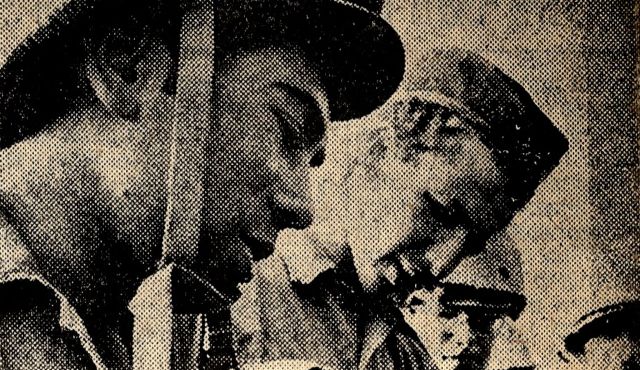
Copyright © Archives
By Alona Ferber, Haaretz
On October 7, 1973, tensions were simmering on the streets of New York. It was the day after the Yom Kippur War broke out and on Manhattan’s Fifth Avenue, members of the extreme right-wing Jewish Defense League, kitted out in shiny blue motorcycle helmets, attacked Arabs protesting outside the office of Israel’s delegation to the United Nations.
The war had started the previous afternoon with a coordinated attack against Israel by Egypt from the south and Syria from the north, while synagogues were still full of people praying on the most sacred day of the Jewish calendar. Controversy has surrounded the question of responsibility over the failure to sound the alarm before the war, which ended on October 25 with a cease-fire agreement and more than 2,500 Israeli casualties.
But whatever the intelligence available to the government, it took the Israeli public and the Diaspora by surprise. Haaretz’s coverage from the first days of the fighting reflects world Jewry’s dismay at the news and its hurry to show support.
In France “religious Jews found out about what was happening shortly after they returned from prayers at the synagogues, on the radio news at 1 P.M.” Haaretz correspondent Eliyahu Maissy reported on October 7. “The French and Jews all responded with utter shock to the outbreak of battles along the cease-fire lines on Saturday.”
On Fifth Avenue, meanwhile, the response was impassioned, to put it mildly. Police had to intervene to break up the “fistfight,” as Haaretz correspondent Rafael Rothstein described it. The unrest reportedly died down as pro-Israel protesters on one side of the street drowned out the shouts of the rival pro-Arab rally with “Hebrew songs.”
With the fighting fierce and Israel increasingly diplomatically isolated, Haaretz kept up morale at home with reports of overseas support, from the World Zionist Organization meeting to discuss how world Jewry could help, to Israeli embassies around the world being “flooded” with calls from would-be volunteers, to people standing in line for three hours on New York’s 67th Street to donate blood for Israel.
Among U.S. Jews, the “enthusiastic” support even surpassed that given to Israel during the 1967 Six-Day War, Haaretz reported. Just three days into the fighting, Jews in New York alone had collected some $25 million dollars “in rallies, synagogues and public halls” to help with the war effort. The city’s Jewish community was aware that the war would cost around one billion dollars, a trusted source told Rothstein. Chicago’s Jewish community decided to follow suit, he reported, launching a donation drive with the same $25 million target.
‘The feel of an army base’
During the first week of the fighting, Jewish volunteers were making their way to Israel to pitch in. At one London airport, Haaretz reported on October 12, more than 500 Jews from the U.S. and Canada, keen to serve in the Israeli army, were giving the place “the feel of an army base.”
Jews in the Soviet Union also sent messages of support, although with the Kremlin being on Egypt and Syria’s side, they had to tread carefully. On October 10, Haaretz reported that 45 Russian Jews in Moscow had sent a message to “the Israeli government and Israeli people, our dear brothers and sisters, another tragic military adventure of Arab leaders thirsty for war started on Yom Kippur, and it will end with tragedy for their people. We are with you in these critical moments.”
The significance of Diaspora support during this time of crisis was highlighted in a Haaretz editorial on October 9. Jews around the world had actively shown they were behind Israel, Haaretz said, and this was important not only in practical terms but also politically; public pressure from Jewish communities could help Israel in the international arena. “In Britain, and even in France, there is some sort of value [placed] on public opinion,” the editorial said, adding that in the U.S. Jewish and non-Jewish supporters of Israel were a key counterbalance to pro-Arab lobbyists.
The messages sent from the Soviet Union did not go unnoticed, either. In that same editorial, Haaretz lauded the courage of Soviet Jews who expressed support. “The bravery reflected in expressions that go against the government line in a police state such as the Soviet Union, and the daring of the Jews who risked themselves in this way, is not much less than the bravery shown by our soldiers in 1967,” read the editorial.

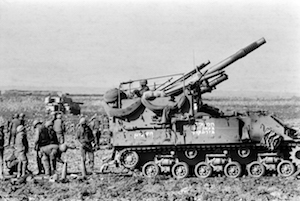
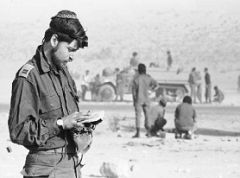
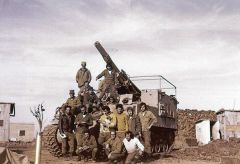
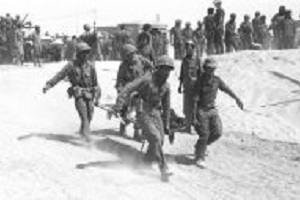



Leave a Comment on Israel Forever